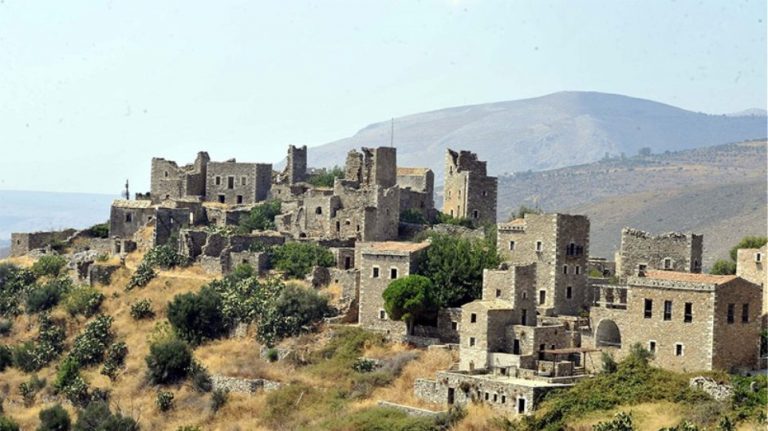As you enter the mountainous village of Pera Melana in Greece’s southern Peloponnese peninsula, you’re likely to hear the roar of scooters zooming down narrow roads and the chirps of birds stealing ripe fruit from trees. But if you approach the village’s central cafe, you’ll hear a rather unusual sound. It’s the buzz of conversations among elders in a 3,000-year-old language called Tsakonika.
The speakers are the linguistic descendants of ancient Sparta, the iconic Greek city-state, and part of a rich cultural heritage and population called Tsakonian.
Thomais Kounia, known as the “empress of Tsakonika” for her mastery of the language, tells her friend about the bread she baked that morning, but my Greek translator cannot understand her. Instead, Kounia translates for him in Greek, and he then tells me, like a game of Chinese whispers. I am in awe. These ladies are some of the last fluent speakers of one of the world’s oldest living languages.
Today, only about 2,000 of the 10,000 Tsakonians, primarily elders, still speak Tsakonika at all, and the language is limited to 13 towns, villages and hamlets located around Pera Melana. While Greek is the region’s official language, Tsakonika is often spoken at home and casually in public here. Yet, its future remains uncertain.
War-like conditions in the Cypriot EEZ – Turkey obstructs “Nautical Geo” research with warships
“We are losing Tsakonika without authentic teachers,” said Kounia. “I have been trying to preserve it for the last 40 years. It is my duty to do so”.
Tsakonika isn’t just important to the identity and culture of Tsakonians, it is the only continuous legacy of the ancient Spartans. It’s also the oldest living language in Greece – predating modern Greek by about 3,100 years – and one of the oldest languages in Europe.
“If we lose our language, we cannot claim to be Tsakonian,” explained Eleni Manou, a Tsakonika teacher and author in the nearby town of Leonidio, the de facto capitol of Tsakonia.
(A conversation in Tsakonika)
Tsakonika is based on the Doric language spoken by the ancient Spartans and it is the only remaining dialect from the western Doric branch of Hellenic languages. In contrast, Greek descends from the Ionic and Attic dialects on the eastern branch. While each of these use a similar alphabet, Tsakonika has more phonetic symbols and differs in structure and pronunciation. Unsurprisingly, Tsakonika is closer to ancient than modern Greek, but none of these languages are mutually intelligible.
Read more: BBC
Ask me anything
Explore related questions





